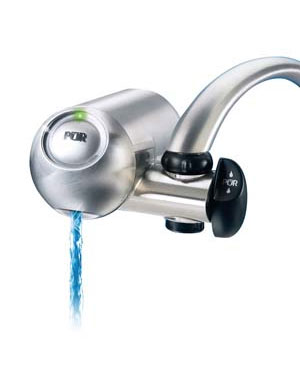Filtered Water Tap Types
If you are in the market for a water filter for your home, you are probably already aware of the wide array of models to choose from. With so many different filtered water tap types on the market, the task of choosing the right one for your needs can be a bit challenging. Making things more complicated are the filtered water tap types that fail to provide adequate protection against contaminants, and should therefore be avoided.
Options in water filter types
Among some of the most commonly available types of water filters on the market today are:
- Carafe style water filters
- Carbon filters
- Ion exchange filters
- Reverse osmosis filters
Unlike filtered water tap types that fit right onto your faucet, carafe style water filters are meant to be filled with water and stored in the fridge. This makes them better suited to filtering relatively small amounts of water, as opposed to filtered water tap types that basically provide as much filtered water as you need whenever you need it. The main drawback to these types of filters is that they are only effective at filtering out chlorine and lead in your tap water. For this reason, it may be best to use other filtered water tap types in conjunction with carafe style filters for maximum protection.
Carbon filters are commonly used in various filtered water tap types. Like carafe water filters, these filtered water tap types are particularly effective at removing chlorine from tap water, although they aren't quite as effective at removing solids and heavy metals.
There are basically two carbon filters used in filtered water tap types:
- Activated granular carbon
- Solid block carbon
Both systems have the advantage of a long service, and they can remove contaminants as small as 1 micron.
Ion exchange filters
Ion exchange filters are different from most filtered water tap types in that they mainly work on the ions in the water. The system utilizes resin materials that effectively filter out mineral salts present in tap water. As effective as these types of filters are, they aren't particularly effective at filtering out organic matter or microorganisms. If you opt for this type of water filter, it would be best to use some other filtered water tap types to provide more comprehensive protection against a wider range of contaminants.
Reverse osmosis water filters
Reverse osmosis filters are actually quite effective, and together with most filtered water tap types, they can provide adequate protection. These filters utilize semi-permeable membranes that effectively filter out organic compounds such as salt and natural minerals that are commonly present in the water. In addition, these types of filters may be able to filter out bacteria and other disease-causing organisms. The main drawback to these filters however, is that they are so effective at their roles, that they also filter out minerals in the water that are essential for maintaining good health. For this reason, it may be better to go for a system comprised of a combination of other filtered water tap types.

Resources
- Home
- Filtered Water Tap Types
- Activated Carbon Water Filter Tap
- Ceramic Water Filter Tap
- Commercial Faucets
- Countertop Water Filter Tap
- Faucet Tap Water Filtration
- Household Water Tap Filters
- Kitchen Water Filter Taps
- On Tap Water Filter
- Refrigerator Water Filter Tap
- Replacement Water Filter Tap
- Stainless Steel Water Filter Tap
- Under Sink Water Filters
- Water Filter Tap Cartridges
